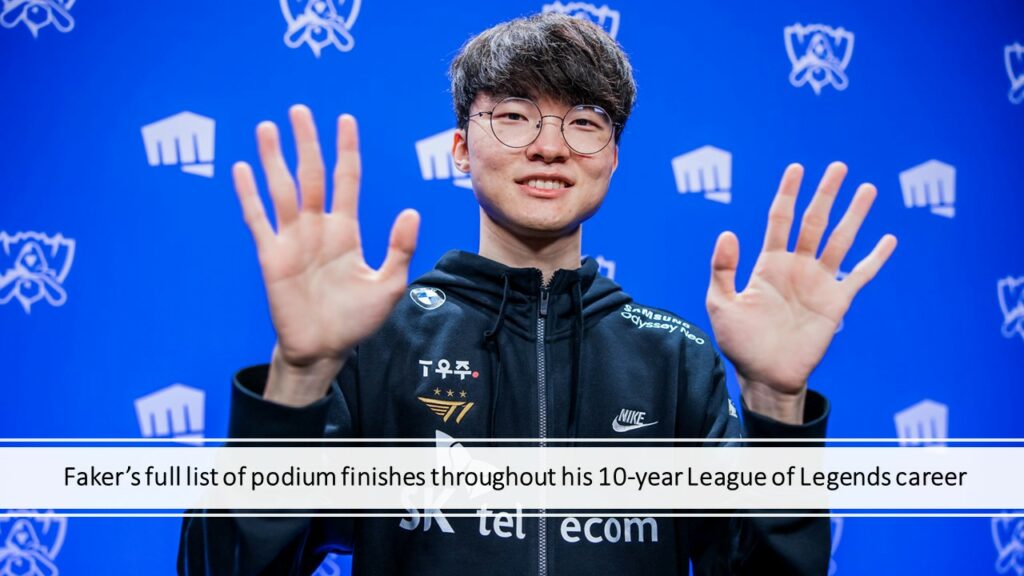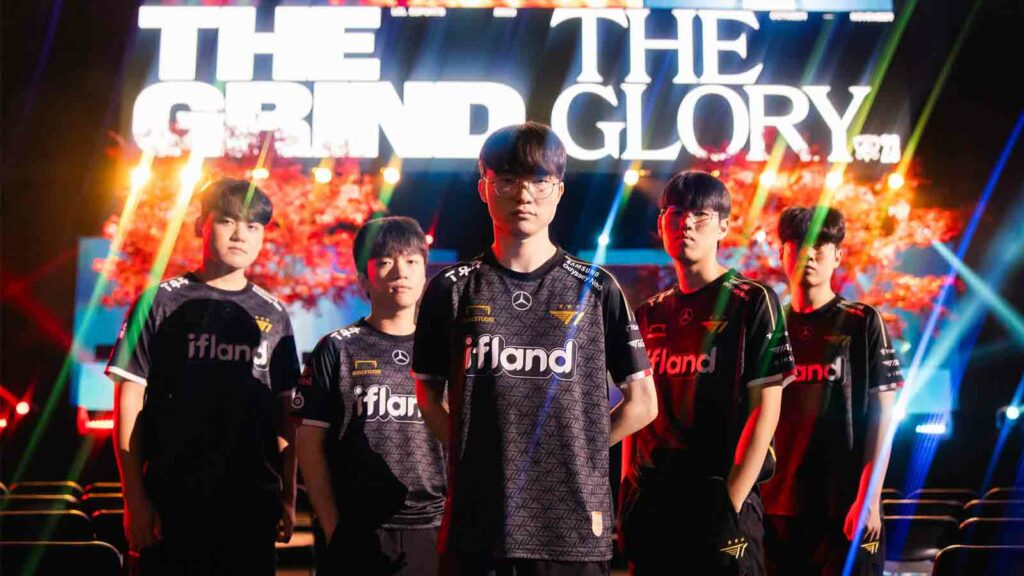T1 Faker voiced his frustration regarding his team’s predicament amidst the ongoing distributed denial-of-service (DDoS) attacks plaguing the League of Legends Champions Korea (LCK).
In a post-game press conference after their 0-3 loss to Hanwha Life Esports in round two of LCK Spring 2024 playoffs, Lee “Faker” Sang-hyeok talked about how these attacks have significantly hindered T1’s ability to perform, making it impossible for them to practice in solo queue.

“I believe it is true for me to state that we were not given a fair opportunity to practice compared to other teams,” T1 Faker said during the press conference, as translated by content creator Ashley Kang.
In light of DDoS attacks in the LCK, T1 Faker speaks up about his team’s situation
The T1 team has been severely affected by the widespread DDoS attacks in the Korean solo queue. These attacks have prevented players from participating in practice matches online, as constant disconnections have made proper practice impossible in the weeks leading up to the LCK Spring 2024 playoffs.
Key members of the team, including jungler Mun “Oner” Hyeon-jun, bot laner Lee “Gumayusi” Min-hyeong, and support Ryu “Keria” Min-seok, were among those targeted by DDoS attacks during their livestreams.

T1 Faker attributes T1’s 0-3 loss to Hanwha Life Esports in the LCK Spring 2024 Playoffs round 2 to these circumstances, highlighting the detrimental impact of the DDoS attacks on the team’s performance.
DDoS attacks in LCK: A brief timeline
The disruption started on February 25, 2024, during matches in the LCK between DRX versus Dplus KIA and OKSavingsBank BRION versus Kwangdong Freecs. The attacks prompted technical pauses, leading to significant delays during matches.
Matches involving OKSavingsBank BRION and Kwangdong Freecs were rescheduled and conducted online.

Despite network inspections and response measures by LCK management, DDoS attacks persisted, disrupting broadcasts.
The LCK management switched to pre-recorded matches for the remainder of Week 6 to mitigate the impact of ongoing attacks. Ticket holders for affected matches were promised full refunds, and ticket sales were halted.
LCK Secretary General Aiden Lee announced a plan to return to live broadcasts without an audience gradually.
On March 13, 2024, an offline game server was implemented at LoL Park to provide a secure environment for LCK matches and defend against future DDoS attacks.
What are DDoS attacks in esports?
DDoS (Distributed Denial of Service) attacks occur when multiple computers flood a website or online service with an excessive amount of traffic, causing it to become overwhelmed and unable to function properly. This overload often leads to slowdowns or crashes.
In the context of online matches, a DDoS attack disrupts the game by bombarding either the game server or the players’ internet connections with fake traffic. As a result, gameplay may become laggy or players may experience frequent disconnections.
Follow ONE Esports on Facebook and Twitter for more LoL news, guides, and highlights.
READ MORE: Majority of T1 in All-LCK Second Team — mid laner earns coveted Triple Crown and it’s not Faker


